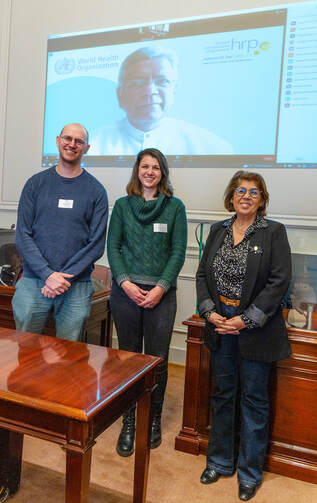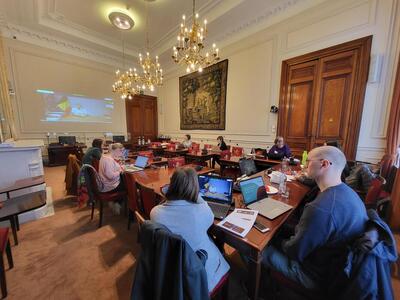
Worldwide, efforts are being made to provide quality comprehensive sexuality education (CSE) for young people. It’ is also an important topic in Belgium, with common working points in the Flemish and French-speaking parts of the country. An exchange organised by the 'Parliamentarians for the 2030 Agenda' took a closer look at the challenges and opportunities for advancing CSE. International and national experts shared their knowledge and the session was introduced by a motivating message from Minister for Development Cooperation and Major Cities Policy Caroline Gennez.
Global challenges to qualitative CSE
Dr Venkatraman Chandra-Mouli, expert in adolescent sexual and reproductive health at the World Health Organisation's Department of Sexual and Reproductive Health and Research, explained how sexuality education increases the health and educational opportunities of adolescents, protects them from abuse and teaches them social-emotional competencies and norms around gender equality. Achieving CSE is only possible if it is also supported by the local population and the trainings are delivered by local staff. There are good examples of this.
Chandra-Mouli also shared success stories of extracurricular programmes promoting CSE. These programmes are often underestimated although they are needed, given not all young people get the chance to go to school.
Chandra-Mouli also shared success stories of extracurricular programmes promoting CSE. These programmes are often underestimated although they are needed, given not all young people get the chance to go to school.
CSE in Belgium
In a Belgian context, qualitative CSE cannot be taken for granted either. Wannes Magits, youth policy officer at Sensoa, gave a brief overview of CSE in Flanders and the Dutch-speaking part of Brussels. Coraline Piessens, Project Manager EVRAS, Fédération Laïque de Centres de Planning Familial, talked about the challenges that still exist in Wallonia and Brussels. Although there are differences between the Flemish and French-speaking parts of the country, there are common working points.
- There is a lack of data on how many schools organise formation and how frequently this happens over young people's school careers.
- Too often, CSE still depends on a few enthusiastic teachers who take it on themselves, but it is usually neither structurally nor efficiently planned.
- At school, little time is set aside for it or little money is provided to engage external educators.
What opportunities should we seize?

Schools need more support from the government. More money and time should be made available to plan for CSE in a structural and effective way. Schools should also be better informed about the importance of CSE and how to organise it.
Young people themselves should also be more involved in developing and organising CSE. After all, young people themselves know best what they need and how best to communicate with them about CSE. Allowing them to participate in the development and organisation of CSE puts them first and increases the effectiveness of CSE.
International cooperation initiatives should involve local people in organising CSE. Only then can CSE be robustly integrated and also withstand possible religious and conservative opposition.
Young people themselves should also be more involved in developing and organising CSE. After all, young people themselves know best what they need and how best to communicate with them about CSE. Allowing them to participate in the development and organisation of CSE puts them first and increases the effectiveness of CSE.
International cooperation initiatives should involve local people in organising CSE. Only then can CSE be robustly integrated and also withstand possible religious and conservative opposition.

 RSS Feed
RSS Feed